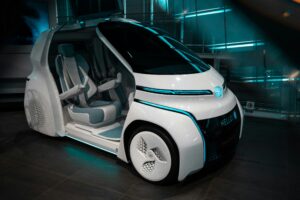Imagine a world where your morning coffee is brewed not by a barista, but by a robot. Sound like science fiction? Think again. With the rise of automation and artificial intelligence, the food and beverage industry is undergoing a revolution that promises to change the way we experience dining.
From automated coffee machines to robot chefs flipping burgers, technology is reshaping the way food is prepared and served. According to a recent report by McKinsey & Company, automation could potentially save the food service industry up to $250 billion annually by 2025.
But what does this mean for the workers who currently hold these jobs? While some fear that automation will lead to widespread job loss, others argue that it will create new opportunities for workers to upskill and move into higher-paying roles. As Lisa Jones, a food service worker, notes, “I used to be worried about robots taking my job, but now I see it as an opportunity to learn new skills and advance in my career.”
Ultimately, the integration of automation in the food and beverage industry reflects a larger trend towards increased efficiency and innovation in business. As we embrace these technological advancements, it is important to consider the implications for workers and society as a whole. Automation may be the future, but it is up to us to ensure that it benefits everyone.



